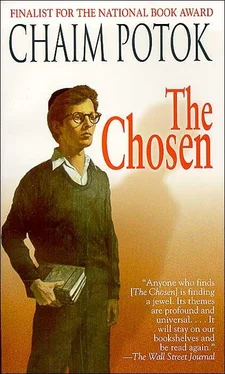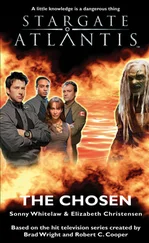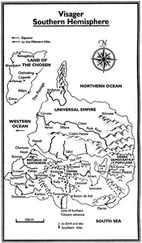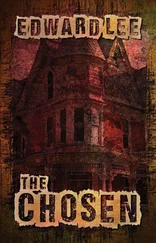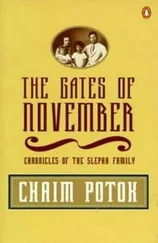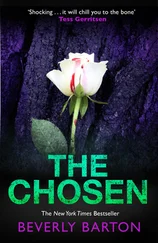He waited until all the students were out of the classroom.
Then he asked me quietly, 'You studied the inyan by yourself, Reuven?'
'Yes,' I said.
'Your father did not help you?'
'My father is in the hospital.'
He looked shocked.
'He's better now. He had a heart attack.'
'I did not know,' he said softly. 'I am sorry to hear that.' He paused for a moment, looking at me intently. 'So,' he said. 'You studied the inyan alone.'
I nodded.
'Tell me. Reuven,' he said gently, 'do you study Talmud with your father?'
'Yes,' I said.
'Your father is a great scholar,' he said quietly, almost wistfully. 'A very great scholar.' His brown eyes seemed misty. 'Reuven, tell me, how would your father have answered my question?'
I stared at him and didn't know what to say.
He smiled faintly, apologetically. 'You do not know how your father would have explained the inyan?'
The class was gone, we were alone, and somehow I felt an intimacy between us that made it not too difficult for me to say what I then said. I didn't say it without feeling a little frightened, though. 'I think I know what he would have said.'
'Nu,' Rav Gershenson prodded me gently. 'What?'
'I think he would have said the text is wrong.'
I saw him blink his eyes a few times, his face expressionless. 'Explain what you mean,' he said quietly.
I explained how I had reconstructed the text, then quoted the reconstructed text from memory. showing him how it fitted perfectly to the explanation offered by the simplest of all the commentaries. I ended by saying I felt certain that was the text of the Talmud manuscript the commentator had had before him when he had written his commentary.
Rav Gershenson was silent for a long moment, his face impassive. Then he said slowly, 'You did this by yourself, Reuven?'
'Yes.'
'Your father is a good teacher,' he told me quietly. 'You are blessed to have such a father.' His voice was 'soft, reverent. 'Reuven?'
'Yes?'
'I must ask you never to use such a method of explanation in my class.' He was speaking gently, almost apologetically. 'I am myself not opposed to such a method. But I must ask you never to use it in my class. Do you understand me?'
'Yes.'
'I will call on you often now,' he said, smiling warmly. 'Now that you understand, I will call on you very often. I have been waiting all year to see how good a teacher your father is. He is a great teacher and a great scholar. It is a joy to listen to you. But you must not use this method in my class. You understand?'
'Yes,' I said again.
And he dismissed me with a quiet smile and a gentle nod of his head.
That evening after my last class, I went to the school library and looked for Rav Gershenson's name in the Hebrew and English catalogues. His name wasn't listed anywhere. It was then that I understood why my father was not teaching in this school.
My father returned from the hospital in the middle of March. He was weak and gaunt, confined to his bed and almost completely incapable of any kind of physical activity. Manya cared for him as though he were a child, and Dr Grossman visited him twice a week, on Mondays and Thursdays, until the end of April, when the visits were reduced to once a week. He was satisfied with my father's progress, he kept telling me. There was nothing to worry about anymore, except to make sure that he had complete rest. During the first four weeks my father was home a night nurse came in every evening, stayed awake through the night in my father's room, then left in the morning. Talking tired him quickly; even listening seemed to tire him. We weren't able to spend too much time together the first six weeks he was home. But it was wonderful to have him there, to know that he was back in his room again and out of the hospital, and to know that the dark silence was finally gone from the apartment.
I had told him about my experience with Rav Gershenson while he had still been in the hospital. He had listened quietly, nodded, and had said that he was very proud of me. He hadn't said anything at all about Rav Gershenson. I was being called on regularly now in the Talmud class, and there were no silences when I read and explained a passage.
I saw Danny all the time in school, but the silence between us continued. I had finally come to accept it. We had begun to communicate with our eyes, with nods of our heads, with gestures of our hands. But we did not speak to each other. I had no idea how he was getting along in psychology, or how his family was. But I heard no bad news, so I assumed things were more or less all right.
The grim faces of the teachers and students in school reflected the newspaper headlines that told of Arab riots and attacks against the Jews of Palestine, Jewish defence measures, many of which were being hampered by the British, and continued Irgun activities. The Arabs were attacking Jewish settlements in the Upper Galilee, the Negev and around Jerusalem, and were incessantly harassing supply convoys. Arabs were killing Jews. Jews were killing Arabs, and the British, caught uncomfortably in the middle, seemed unable and at times even unwilling to stop the rising tide of slaughter.
The Zionist youth groups in the school became increasingly active, and on one occasion some of the members of my group were asked to cut our afternoon classes and go down to a warehouse in Brooklyn to help load uniforms, helmets, and canteens onto huge ten-ton trucks that were waiting outside. We were told that the supplies would soon be on a ship heading for Palestine and would be used by the Haganah. We worked long and hard, and somehow loading those trucks made me feel intimately bound up with the news bulletins that I kept hearing on the radio and seeing in the papers.
In April, Tiberias, Haifa, and Safed were occupied by the Haganah, and the Irgun, with the help of the Haganah, captured Jaffa.
My father was a good deal stronger now and had begun walking around a bit inside the house. We were able to talk at length, and we talked of little else but Palestine. He told me that before his heart attack he had been asked to go as a delegate to the Zionist General Council that was to meet in Palestine during the coming summer. 'Now I will be glad if I can go to the cottage this summer: he said, and there was a wry smile on his lips.
'Why didn't you tell me?' I asked him.
'I did not want to upset you. But I could not keep it to myself any longer. So I am telling you now.'
'Why didn't you tell me when they asked you?'
'They asked me the night I had the attack.' he said.
We never talked about it again. But if I was around, I always knew when he thought about it. His eyes would become dreamy, and he would sigh and shake his head. He had worked so hard for a Jewish state, and that very work now kept him from seeing it.
I wondered often during the coming months what meaning he could possibly give to that. I didn't know, and I didn't ask him.
We wept quite openly that Friday in the second week of May when Israel was born. And on my way to the synagogue the next morning, I saw the newspaper headlines announcing the birth of the Jewish state. They also announced that the Arab armies had begun their threatened invasion.
The next few weeks were black and ugly. The Etzion area in the Hebron Mountains fell, the Jordanian Army attacked Jerusalem, the Iraqi Army invaded the Jordan Valley, the Egyptian Army invaded the Negev, and the battle for Latrun, the decisive point along the road to Jerusalem, turned into a bloodbath. My father became grim and silent, and I began to worry again about his health.
In early June, a rumor swept through the school that a recent graduate had been killed in the fighting around Jerusalem. The rumor ran wild for a few days, and was finally confirmed. I hadn't known him at all, he had been graduated before I had entered, but apparently most of the present members of the senior class remembered him well. He had been a brilliant mathematics student, and very popular. He had gone to the Hebrew University in Jerusalem to get his doctorate, had joined the Haganah and been killed trying to get a convoy through to Jerusalem. We were stunned. We had never thought the war would come so close.
Читать дальше
